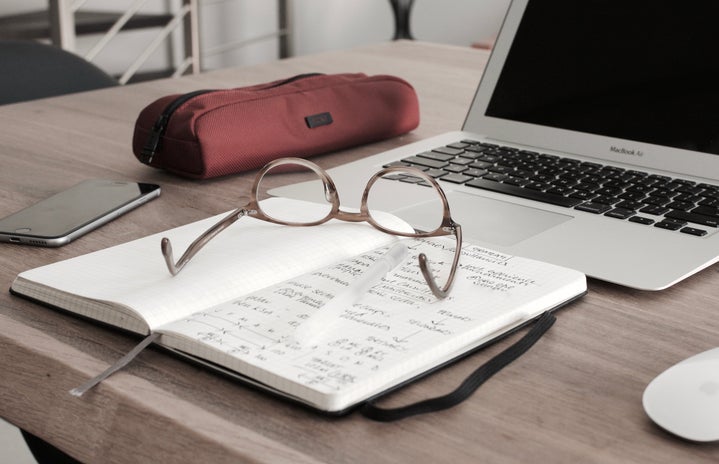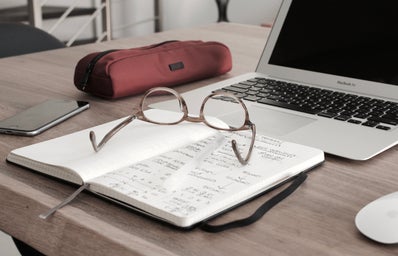In March 2020, we went to our last class before spring break, said bye to our professors and classmates, and left the university building. Little did we know that this was one of the last times of the year for the majority of us to attend class in person. Soon enough everything went digital, which at first felt kind of funny but also like an adventure. You get to wake up two minutes before your class, you can stay in pajamas all day, and get to watch some more Netflix because of all that extra time. However, as the pandemic went on, stricter measures were taken around the world, for some it meant they couldn’t leave their house at all, and staying home all day in front of a screen became an idea we dreaded.
We now do everything on screens; online school, meetings, homework, and research on Zoom, catching up with friends and family, virtual events, watching a movie, social media etc. We literally close our laptops after a three-hour class period only to pick up our phone to see what’s going on in the world.
It is incredible how quickly our society was able to adapt to the unfortunate events that are still going on… But have you noticed any changes on your eyes? Can you see the same? Are you more tired after a single class or meeting?
That may indeed be possible. By now, we have all heard it, “Zoom fatigue”, but what does that actually mean? Think of it as, your digital screen is like the sun, although it does not make you squint as much when you look straight at it, its consequences on your eyes can be as dangerous.

Sunlight, our main source of vitamin D, which contains different kinds of light, is visible or blue light, and invisible radiation. At the end of the spectrum, we’ve got Ultraviolet rays (UV) which has a lot more energy, exposure to it means we can tan in the sun, and too much of it causes us to burn. The cross over here is that blue light is majorly found in the sun’s rays but also in our digital screens. Although there is less of an amount, the issue is that our eyes are very close to our computer or phone screen and for longer periods of time, unlike with the sun.
The sensitive part at the back of our eyes is called the retina, it senses UV rays and can tell our body to block them, that is also why we wear sunglasses, (Not only cause they look cool). Unfortunately, blue light passes through our eye to our retina which can cause some serious effects, causing eye strains, degeneration, blindness, and other things we do not want to imagine.
However, the reason blue lights are so important is that they regulate our Circadian rhythm, your body’s ability to sleep at night and wake up in the day. This is why we are advised not to look at screens in the dark or right before bed because the blue lights in our screens can disrupt our sleep. These lights are also important for our mood, which is why we say let’s go outside and take in some Vitamin D to avoid seasonal depression from lack of sunlight!

Now, blue light glasses. What are they? Why do I need them? Should I get them?
I got my eyes checked and for the first time, I needed to wear glasses. They are only for when I am on a digital screen, but the blue lights in them are what are protecting my eyes from getting worse and impacting my actual vision.
Claudia Langella tells us about her experience investing in blue light glasses.
“I’ve had perfect vision all my life and have never needed glasses to see, but I started wearing blue light glasses last year before the pandemic happened. I thought they would be a good investment since I spent most of my day on my phone and on my computer doing homework, so I ordered a cheap pair from Amazon. Then the pandemic hit, and my daily screen time went through the roof. I had a headache every day. I thought the glasses weren’t helping anymore so I looked into getting a higher quality pair, and now that I have those, I can’t stress enough how important it is to get a pair of blue light glasses from a good company! They’re a little pricey but worth it in my eyes—no pun intended!”
If you’re feeling off about the way you look while wearing glasses, I suggest hearing out Ariana Guerra’s advice.
“I have mixed relationships with glasses. I love being able to see, but I feel self-conscious when I wear them because I went 17 years without them. I don’t fully recognize myself with them on and sometimes they hinder my experience- wearing a mask, exercise, etc. Many people in my life, like my Grandma, compliment my glasses often, telling me that they match my face and that they make me look “more intelligent”.” So I offer this: If anyone is nervous about wearing glasses, try to be kind to yourself. If you’re worried about your appearance, I can assure you other people will love your glasses, but what matters most is how you feel– being able to see is such a gift, and it is beyond worth being able to see the details in trees or reading a wonderful book.”
Even glass wear-ers have added blue light glasses to their carts, might it just be about the placebo effect though?
Sabrina Romviel:
“I wear contacts every day to avoid wearing glasses– I’ve been a glasses wearer since I was a kid and never loved how they looked on me– but for whatever reason, I love wearing blue light glasses in class and when I’m doing schoolwork! The intelligence placebo surely plays a role, but I also enjoy using them as an extra motivator to stay productive. In terms of their practicality, they’re a lifesaving solution to the screen-induced headaches I usually suffer through towards the end of my workday. I wear the clear square style from Quay Australia.”
Ananya Shrivastava:
“I bought blue light filter glasses a few months back and I have to say, since they are now an important in-class accessory, I feel incomplete attending classes without them. I’m still not sure of how effective they are and yet I think they’re working their placebo magic on me! I do think glasses, in general, are important for several people and though these are definitely not as essential for me, I still treasure having these while attending Zoom School of Economics.”

Some other tips to keep your eyes awake but in a healthy way:
Apply the 20-20-20 rule! This means every 20 minutes, look away for 20 feet (6 meters), for 20 seconds. This will give your eyes a break to refresh.
Stay hydrated and blink! This seems obvious, but when we stare at a screen, we tend to have the need to focus more, either because we are reading or even trying to pay attention to someone speaking. Truth is staring at a rectangular box requires more attention than socializing for many hours, because we have fewer visual cues (body position, hand gestures, facial expression), which means we need to have an extra focus on what someone is actually saying, as their image could also not be as clear as we’d like, or camera off.
What digital screens can do is strain your eye, causing it to become dry because we blink less. Therefore, using eye drops or simply splashing some water on your face can help rehydrate your eyes. Adjusting the brightness, distance, and glare are also important as they can help minimize how much light your eye is forced to take in.
Being able to see is precious and so important, and it’s never too late to protect your eyes. Whether it’s investing in glasses, trying to blink more, or tracking how long you stare at a screen, each step will make you feel less fatigue and safer. In the long run, you’ll continue being able to see beautiful people, places, and experiences.




